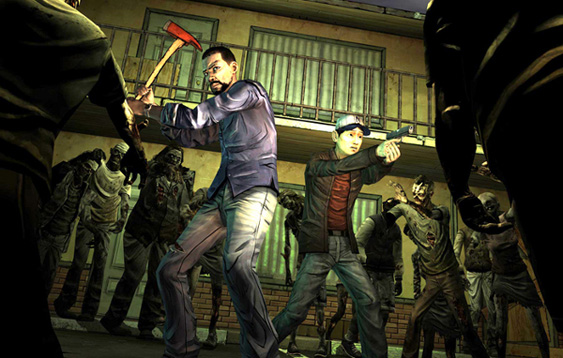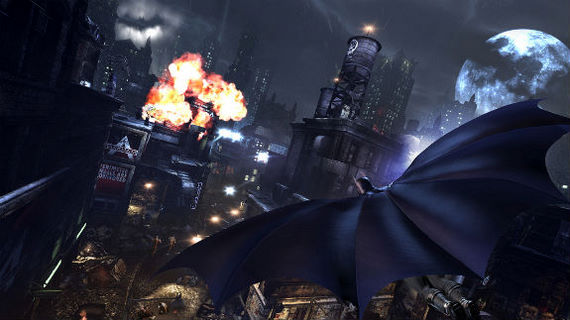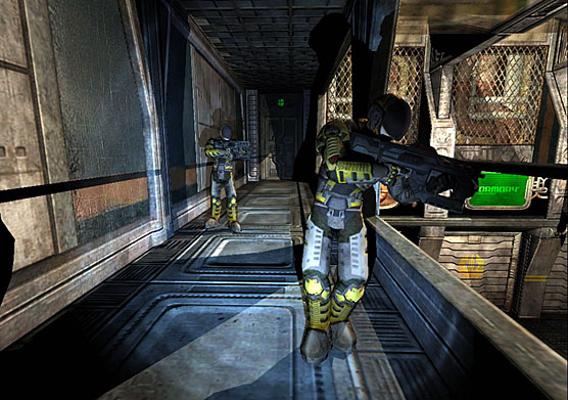This post has not been edited by the GamesBeat staff. Opinions by GamesBeat community writers do not necessarily reflect those of the staff.
Here’s a bit of news that won’t come as a shock to anyone who’s played games for at least a handful of years: the majority of videogame adaptations of popular intellectual properties are crap. The most any gamer can hope for when they hear that their favorite television show or book is being adapted into a video game is that the game itself turns out to be mediocre. Blade? Abysmal. 24: The Game? Utterly forgettable. Superman 64? Memorable but for all the wrong reasons. I could go on for a while listing licensed games that just suck, and you probably could too, but let’s skip over all that. Let’s talk about a rare occurrence—the video game adaptation that gets it right. There’s only a handful that spring to mind immediately: the Batman: Arkham series, The Walking Dead, Chronicles of Riddick: Escape from Butcher Bay
That’s three. Out of the untold number of licensed games that been produced—three totally phenomenal games that are, without a doubt, worth owning. What makes them work?
Immersion and fidelity to the source material.
Games have one advantage over other artistic mediums in that the expectation is for the gamer to be an active participant, as opposed to someone who’s reading a chapter in a book or watching events unfold on a television program. This ability to participate within the events of a popular source material’s universe is an opportunity for developers to mold a rich experience that is, sadly, underutilized in the majority of licensed games. The problem with games like Thor and Iron Man is that they never endeavor to be more than just button smashers. That isn’t intended to be some elitist smackdown of button smashers—I love God of War from time to time—instead my disappointment stems from the fact that these two games don’t ever create an experience that pulls me out of the mindset that I’m playing a game. It never rises beyond “here I am in my living room with a controller in my hand, mashing buttons to make Thor beat some dudes into the ground.” That sort of experience quickly becomes so mind-numbingly formulaic that I’m never pulled into the world and soon enough I’ve either put the controller down or I’ve played through an unsatisfying game just to go through the motions.

Telltale’s The Walking Dead does the opposite. The game focuses on the nihilistic horror of both the comic and the television show, and ultimately tailors gameplay to enhance that quality to the point that the game is actually a better rendition of the universe than the material it draws inspiration from. I wrote this bit for my Game of the Year write-up and believe it’s the best way of articulating the reason of why this game adaptation is superior, so I’ll just quote it here:
“Sure, the comic book and television show are compelling in their own respective ways, but there’s definitely a difference between watching a bunch of people sit around a campfire after the apocalypse, pondering man’s inhumanity to man and then actually playing as those people. Carl Grimes is in mortal danger? I’ll admit that my blood pressure’s up a little bit. However, if you lay a hand on my Clementine, I will straight up murder you with a hedge trimmer, motherfucker.”
Clementine is a big reason why Telltale’s version just works. In the first episode of the “season,” I saw her as nothing more than an irritating game mechanic (“Oh great, a brat I have to look after.”). But, as you might have surmised, I came to care for her a great deal. I have no shame in telling anyone that I was in tears by the ending of the last episode, which I won’t spoil for anyone who hasn’t played it yet. I will say that from Episode 2 and onward I was immersed in this bleak world Robert Kirkman has created. I forgot there was a controller in my hand, forgot that I was some twenty-something graduate student in an apartment. I became Lee Everett. I constantly second-guessed all my decisions and felt guilt over some of my actions, even though they were clearly the logically sound ones. The Walking Dead dares to be a dark, depressing game that offers its player no breaks or false hope and demands that they make difficult and morally gray choices, just like the characters in the source material. That’s why it works.

It’s also kind of why the Arkham series works; Rocksteady manages to capture what it is to be Batman, especially in Arkham City. Part of that lies with the superb story penned by Paul Dini, the other part is the gameplay. Once you get past the logical hurdle of Gotham city sticking the crazy, overpowered super villains in a walled off, abandoned section of the city, everything that follows is well-written and memorable, especially that final act. But the ease of the controls as you leap and glide from the rooftop to the street to take down some thugs with a mixture of martial arts, smoke bombs, and batarangs is almost awe-inspiring. Now, compare this with the Superman games, the multiple developers for which have never ever gotten controls right or even the context for a game, which is somewhat understandable: how do you develop a game around a character whose powers are (in most renditions of the character’s mythos) endless? Then again, the writers could just create a situation where his powers are Metroided. Also, a game where he isn’t glitching through walls or fighting a tornado would be good, too.
That both of these popular IP games are successes is pleasing, but even more pleasurable and shocking is just how good Starbreeze Studios’ Chronicles of Riddick: Escape from Bucher Bay was upon release in 2004 (and still is, actually). Maybe it’s just me, but I’ve never particularly cared for the Riddick IP. Pitch Black was a passable horror film with some good scares, and The Chronicle of Riddick has a scene with a man being murdered by a tea cup. That’s about all the praise I can dish out for that movie, though. Regardless of my general apathy toward those two flicks, Butcher Bay is an old flame of mine, a flawed masterpiece that serves up great action and a compelling story. The game uses several prominent features of the series’ lore to enhance the gameplay, such as Riddick’s famous “eyeshine,” but what really makes Butcher Bay work is the setting: a nightmarish prison floating in space, a place that’s fits the Riddick universe to a t. You spend much of the game as blunt, gruff Riddick, navigating the grates and cargo areas of this hellhole. To me, Butcher Bay is one of those rare instances of gaming alchemy. Starbreeze took the materials provided by a mediocre film series and crafted something that gleams in the dark, a game that’s way better than it should be. Funny enough, Starbreeze went on to do the same with The Darkness, turning an OK comic book series by Garth Ennis, into something just as good as, if not better than, Escape from Butcher Bay.

Game adaptations not only work, sometimes they become better than the source material the game is based upon by both being faithful to that material and designing the game in a way that will pull the gamer into that particular universe. It’s almost infuriating how many amazing IPs have absolutely terrible game adaptations, especially Star Wars. There hasn’t been a knock ‘em dead kind of quality Star Wars game since the days of Knights of the Old Republic and Jedi Outcast. That’s a universe that’s been constantly expanding ever since the original trilogy ended back in the 80s. There are good ideas floating about, yet we keep getting saddled with terrible motion games and admittedly decent MMOs. But I don’t want a decent MMO. Star Wars deserves better than that, maybe a Jedi game that plays like Dishonored or starship warfare RTS that doesn’t suck. There’s still so much a good developer can do with that license and all the other worthwhile licenses floating about.
What are some of your favortiate video game adatpations? What kind of quality adaptations do you want to see? Chime in below with the comment feature.
